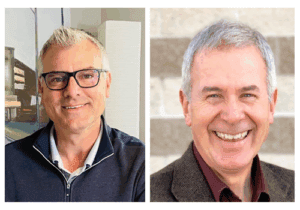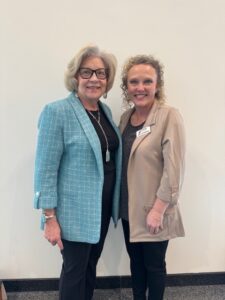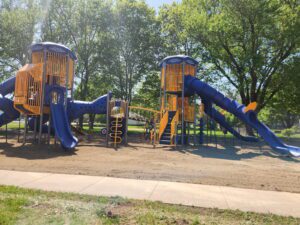By CEDA staff
Throughout the past few years, CEDA team member Courtney Bergey Swanson has been working with the owners of the Spring Grove Cinema on a transition plan. Running a one-screen movie theater in a small town is tough–so the community had to get creative with new uses for the space in order to attract a buyer. The Spring Grove Cinema was accepted into the inaugural Activate Rural cohort through the Department of Public Transformation, and received $25,000 in grant funding to support new programming, including live music, gaming on the big screen, and the creation of a new student union on the second floor of the building, in partnership with the local school. CEDA assembled a local stakeholder committee to implement these new ideas while they searched for a solution to keep the movie theater open long term.
Throughout the Activate Rural cohort period, one of the stakeholders became so passionate about the Cinema that he decided to take an entrepreneurial leap and purchase the building. Courtney and the Spring Grove EDA supported the new owner in writing a business plan that incorporated learnings from the experimental programming, and ultimately issued a $25,000 loan to support the purchase of the theater from its former owner. The marquee still glows on Main Street!
To learn more or catch a show, visit www.sgmovietheater.com/.
To learn more about the Activate Rural program, visit www.publictransformation.org/activate-rural.




 An exciting opportunity to connect with other rural stakeholders, CEDA’s Annual Meeting will be held on July 31, 2025 at Visions Event Center near Winona, MN.
An exciting opportunity to connect with other rural stakeholders, CEDA’s Annual Meeting will be held on July 31, 2025 at Visions Event Center near Winona, MN.